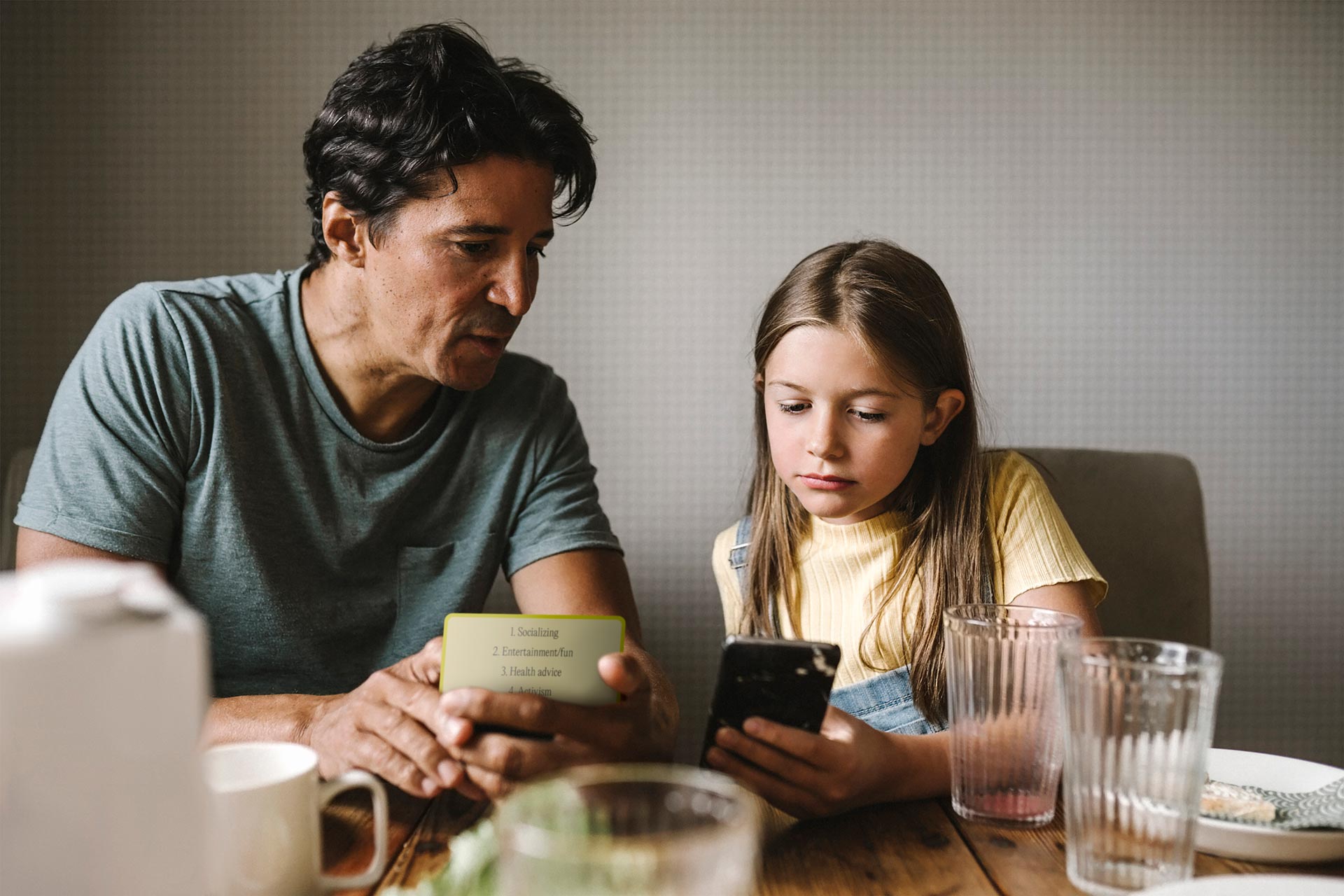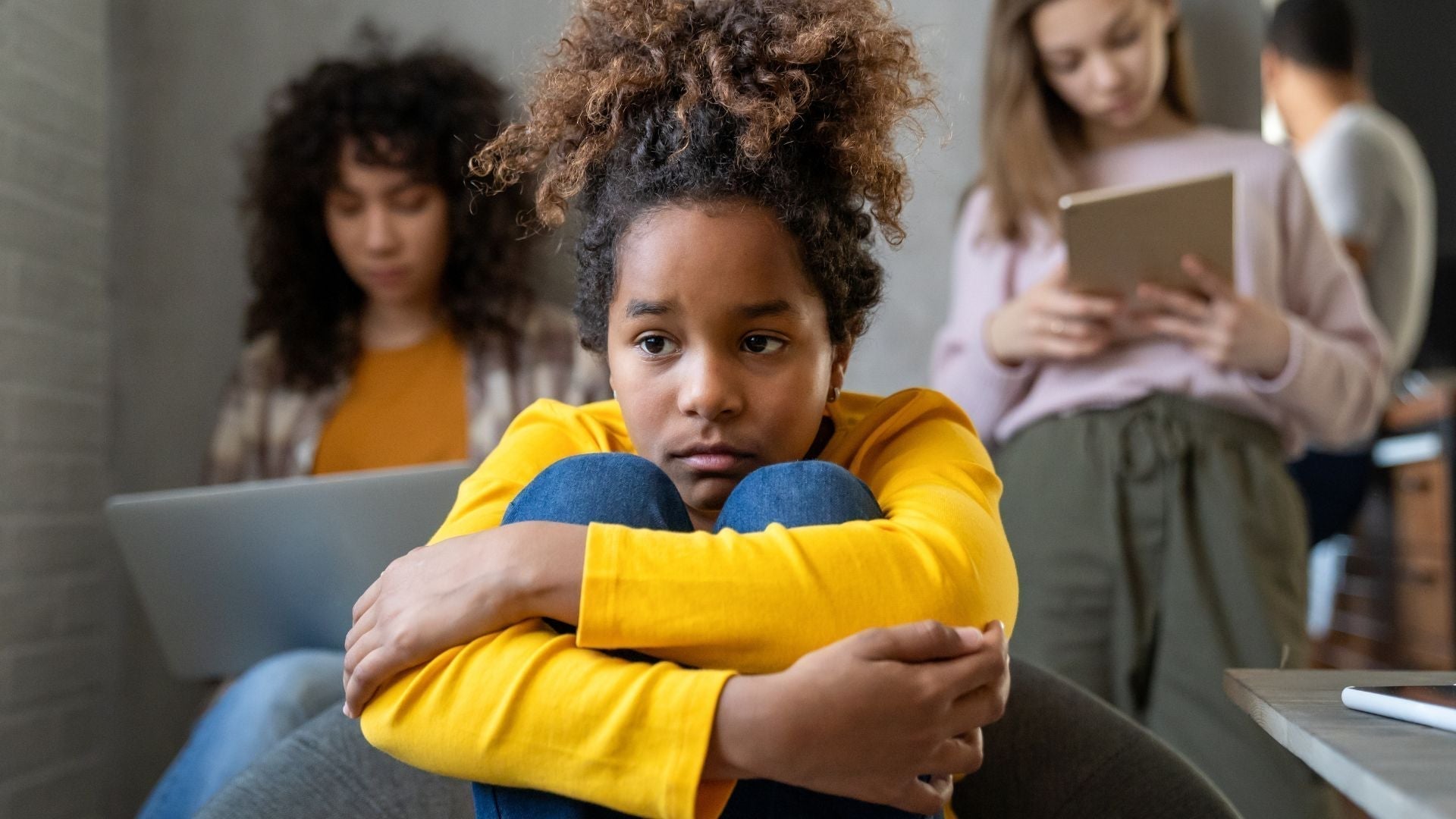What Is Hygge? The Cozy Danish Concept That Transforms Conversations
Hygge is a way to genuinely create and appreciate togetherness. It can be an action, a mood or even a state of being, and it’s one of the main reasons Danes are so happy. Feeling connected to others gives meaning and purpose to all of our lives, especially with our children. This is why dedicating time to hygge is so special.
The Raising Digital Citizens conversation cards are designed to be a cozy experience. Some children will find sitting next to you on the sofa with some nice snacks, rather than making direct eye contact, easier for them to converse.

When doing the cards, try to keep negativity, work stress, complaining, and anything that can be subtly divisive out of the hygge space (this means inside your head too).
Others will enjoy doing the cards over a dinner table or at set times when you both are more relaxed. Food can regulate blood sugar which helps mood and concentration.
When doing the cards, you don’t need to know all the answers or teach lessons about what one should or shouldn’t do. The “I know best and I’m telling you” effect is not hygge. The reality is, you will never know as much as your child does about technology. That’s ok.
You can, however, know more about how to have good conversations around technology which is even better. This takes practice. Instead of quizzing or giving the cards to your child alone, alternate reading the questions and suggest looking up information together when you don’t know.
The aim is to have a nice time and become more clever together.
This way you model curiosity, equality and that learning is a lifelong endeavor. It also normalizes talking and sharing. The aim is to have a nice time and become more clever together.
The more you have the right mindset going in, the more pleasant it will be. If you keep hygge in mind, not homework, it can be a great bonding experience.
Tips for hygge and togetherness for conversations
Make it cozy
Make something nice to eat or drink. Find a cozy spot and create a warm atmosphere. This can be on the sofa or at the kitchen table - you know your child best. Consider this time to be together important and enjoy it. Aim for hygge in mood and setting.
Be present
When doing the cards, try to keep negativity, work stress, complaining, and anything that can be subtly divisive out of the hygge space (this means inside your head too). Think “we time” not “me time”.
Avoid “telling”
If you feel yourself getting into the mode to “tell how it is” remember that this often makes kids say “yes, yes” without really listening and remaining open-minded.
Having the tone of “you should do it this way” can irritate or even provoke some children. There will be so much you don’t know so try to get comfortable with learning together, rather than “telling”.

Take turns and learn together
Take turns taking the cards. If it’s a question you know nothing about, ask your child if they know. If there is something you both don’t know, suggest looking it up together. Toss the topics back and forth and let them know you believe in their ability to make good decisions.
- “Wow, I don’t really know. Do you know what that is?”
- “What does this mean?”
- “Oh really? I had no idea. Can you tell me more about it?”
- “I don’t know either. Let’s look it up.”
Hygge not homework
When it feels like it’s getting to be too much information or unpleasant, stop. These are to be done over a period of time, not all at once. Sometimes, one card can take a very long time. It’s all about the approach and mood.
So choose the questions and dilemmas you want to take each session. When it’s enough, put it away for next time. Above all, it should be a cozy, higgling experience so gauge when to say when.





